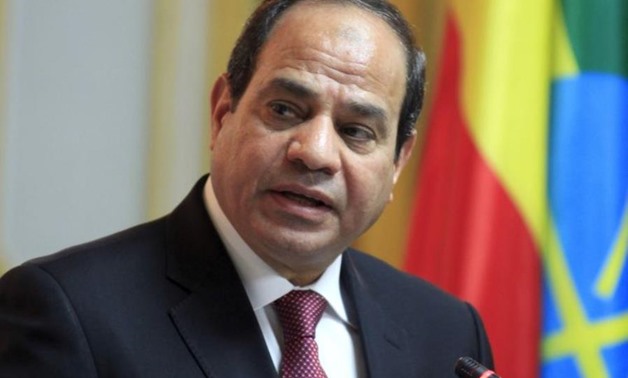
President Abdel Fatah al-Sisi – File Photo
CAIRO – 15 October 2017: During the graduation ceremony of the students in the Telecommunication Technology Initiative held on Sunday, graduates presented their projects, ideas, and what they have learned in the program and training courses. The ceremony was attended by President Abdel Fatah al-Sisi.
Ahmed Khaled, a chemical engineer, launched Waste Marche which is an online platform where factories can upload photos of their waste for sale so potential buyers can contact them. The platform also allows for consultations on how they can deal with that waste according to its type.
Khaled and his partners are now working on attracting more customers so they are hoping the Industry and Trade Ministry will help them promote their platform among factory owners. “Pursuing your dream is a highway for success. Presidential initiatives subsidize us to grow so I encourage everybody to join them,” Khaled said.
Mostafa Ashraf, an electrical engineering student, established a company that produces different goods fully depending on renewable energy. Among the multiple ideas Ashraf and his collegues have had, they decided to execute a mobile phone charger operating by solar energy to be installed in public places.
“We aim to be the biggest company worldwide by providing renewable company solutions,” Ashraf said.
Yara Essam, a telecom and electronics engineer, said that the initiative granted her and others access to Integrated Circuits software programs, provided by big companies such as Synopsis.
Khaled Talal, Ph.D., and a representative of Synopsis in the MENA region said, “We were encouraged to invest in Egypt because of its talents and because of the state policies and initiatives in the field. We consider building an excellence center to develop the Synopsis projects and the great minds in Egypt.”
“I hope that I’ll be able to hire the students I taught in the training course in the excellence centre,” Talal said. The president responded that he would endorse any programming project Synopsis aims to build in Egypt.
Walaa Mokhtar, an engineer, said that she took all the courses she needed within the initiative. “Otherwise, I would have paid LE 20,000 ($1,134.72),” Mokhtar said. Mokhtar and her colleagues’ graduation project was related to 4G, as the end of the course came in correspondence with the launching of that service in Egypt.
“We launched in Qaliubiya. We developed an application that determines the sites that can be covered by 4G,” Mokhtar said.
Jackeline Nady, a programmer, developed with her colleagues what they termed “Freelancing;” a platform enabling clients to reach freelancers who post their fields of expertise, their availabilities, and their rates.
It helped people in Upper Egypt, especially females in the programming and telecommunication fields, by granting them jobs without having to move to big cities.
Some got annual contracts with companies in Europe and North America to work online. “So far, we garnered $10,000,” Nady said.
Andrew Sadek, a programmer, installed the Internet of Things (IoT) technology in different devices that can prohibit accidents and help people with different tasks. One of these devices can detect the loss in water supply to inhibit it altogether; as such a loss has been common to a certain percentage.

Comments
Leave a Comment